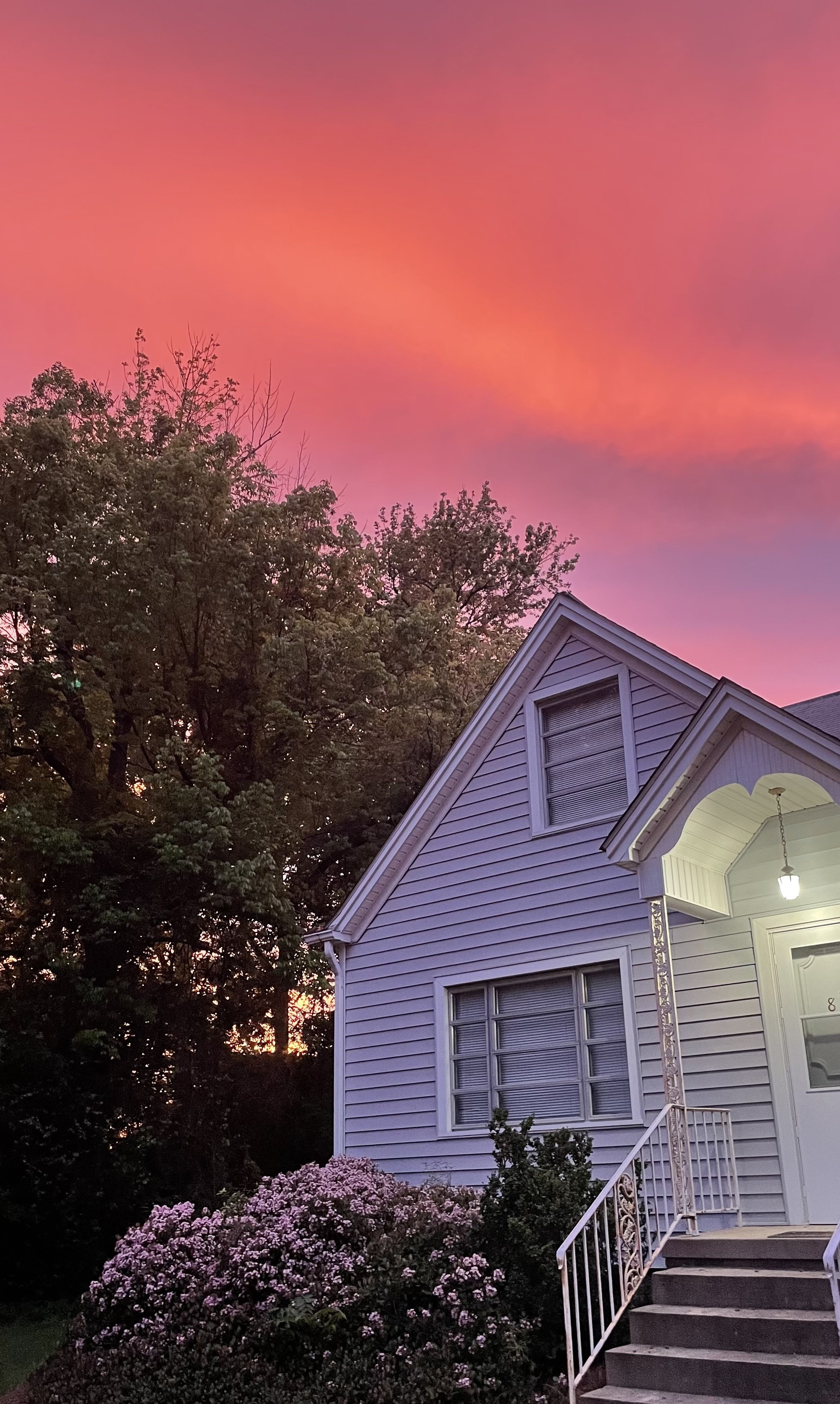American impressions: flora and fauna
Reflections on my time as a Fulbright Visiting Scholar at Elon University, North Carolina.
1. Elon University · 2. Flora and fauna · 3. Teaching technology ethics · 4. The sport · 5. Being a Fulbrighter · 6. Life in the North Carolina Piedmont · 7. The national future.
One afternoon, small bales of pinestraw appear in my back garden. The next, Elon grounds staff spread it over the red clay and centipede grass that flash-flooded last week. Circular divots soon pock the springy straw as squirrels bury their finds. Overgrown shrubs creak against my windows when the wind is up; it takes several hacks of the kitchen scissors to cut back something purple and threatening that’s crept into the blades of the air-con.
The sun hits differently at these latitudes. There’s been a misconversion, surely: 65 °F is 25 °C now, and even in February the skies are usually cloudless. I can see why UNC chose that specific shade of Carolina Blue. I begin to wonder whether it’s just the weather that’s keeping me happy, holding at bay the loneliness and uncertainty that stalk anyone far from home. Although we creep up to 33 °C by my departure, I miss what people tell me is the really malevolent summer heat, all humidity and subjugation.
Just the one tornado warning.
As the seasons rotate the world awakens. Dogwoods erupt with white flowers, which yellow at the edges and fall just two weeks later. I can barely see the bird feeder, attached to a denuded February tree, for leaves. (I moved it several times to thwart the squirrels, but soon conceded they were too smart for me and I was now feeding them too).
Cardinals are my favourite garden visitors, the males a shocking, unnatural red. Little spiky helmet, black faces, and profoundly grouchy, twitching and snapping at each other for territory and excavation rights. I call them ‘cardioids’ and my heart bursts. I buy sacks of the special Red Bird Food from Harris Teeter, which is probably 70% sunflower seeds, apparently a cardioid favourite. Their songs always fall or rise, like sound effects from a toy laser gun. Pew-pew-pew-pew. Twit-twit-twit-twit. Such an easy choice of state bird that fully seven states, North Carolina included, have made the appointment.
Cornell’s Merlin app, my wife’s recommendation, identifies other lurkers: northern mockingbird, tufted titmouse, blue jay. Carolina wren, red-bellied woodpecker. A mourning dove, handsome and almost veloured. American robins are nothing like their European cousins, lacking the popcorn bounce but borrowing some magpie impudence. My first bluebird, harder to spot than the cardinals, a streak of colour slicing across a tree line. I reluctantly conclude the birds of prey I see are mostly turkey vultures, which on the ground resemble wet black towels. Doubtless there are more impressive species to my west, up in the Appalachians. I catch one or two TuVus snacking on squirrel viscera, true to form.
Surprisingly no raccoons at all, and although it’s meant to be a mega cicada year – one of those prime-number-meets-prime-number superevents – they’re no noisier than I’ve heard before. Elon’s squirrels are tiny by London standards, but an hour south in Pinehurst we’re met on the course by fox squirrels, easily 60 cm and skunklike.
There are no cats. Seems America has decided it’s cruel to permit a cat its species-typical behaviour and instead locks them all indoors. On my short London street I have at least seven cat friends but in Alamance County I have none. I miss them.
One evening two deer amble up to the feeder. We hold our breaths and take smeary photos as they drain the Red Bird Food. Later a lone rat snake, boustrophedon and fast diving into the conifers, whitetail dragonflies with box-square wingtips and, as I pack to leave, fireflies peppering my parked car, cigarette ash flicked upwards towards extinguishment.





